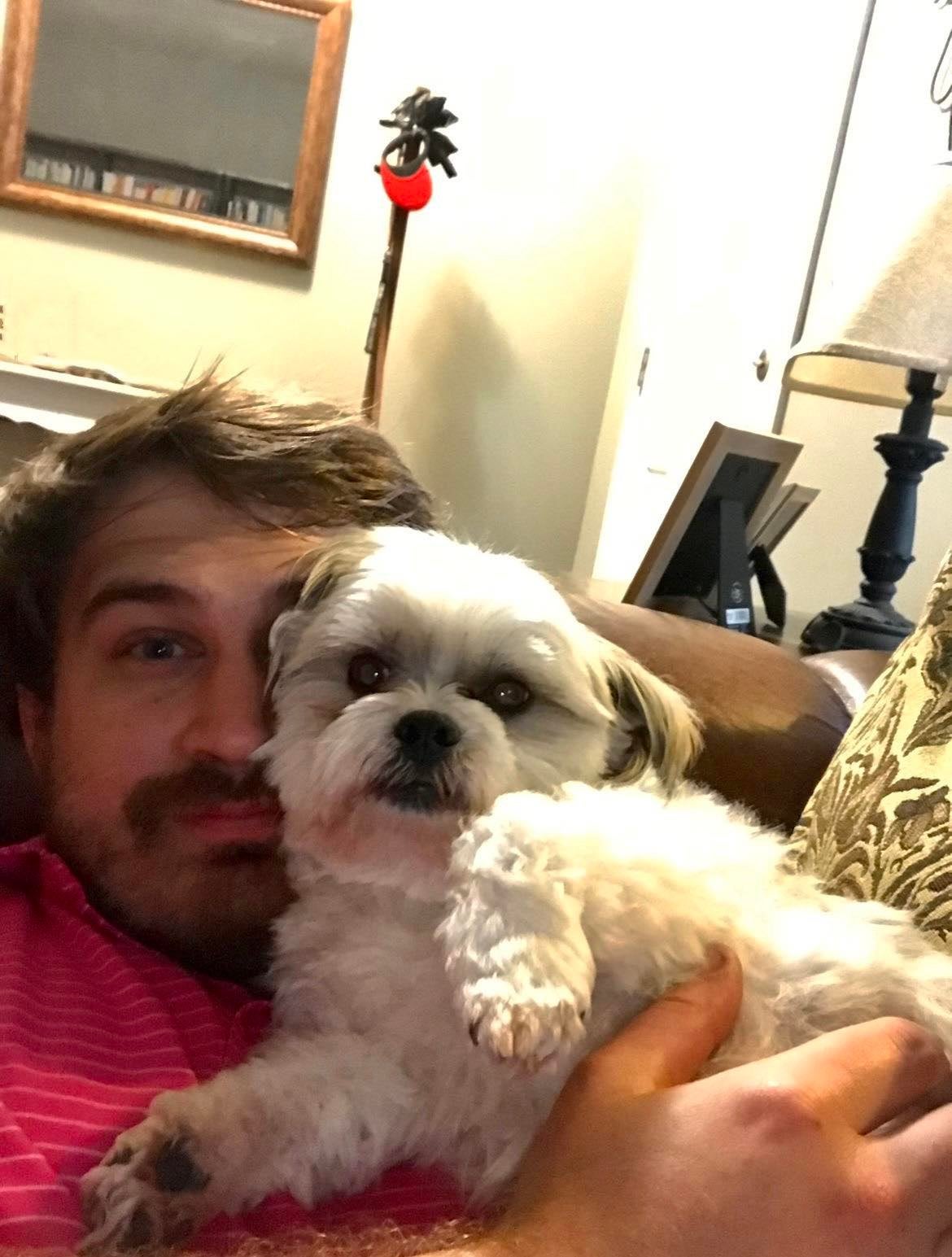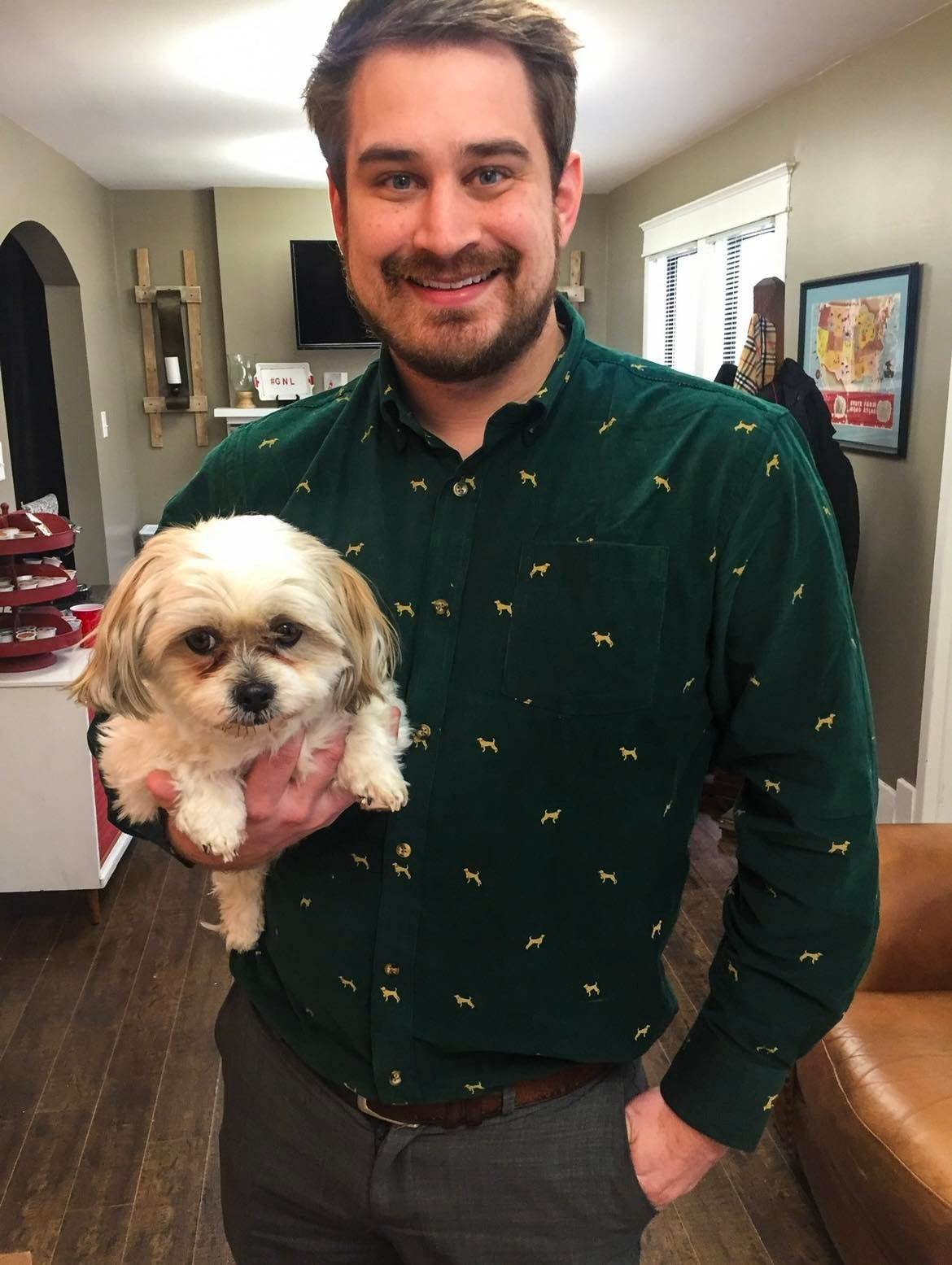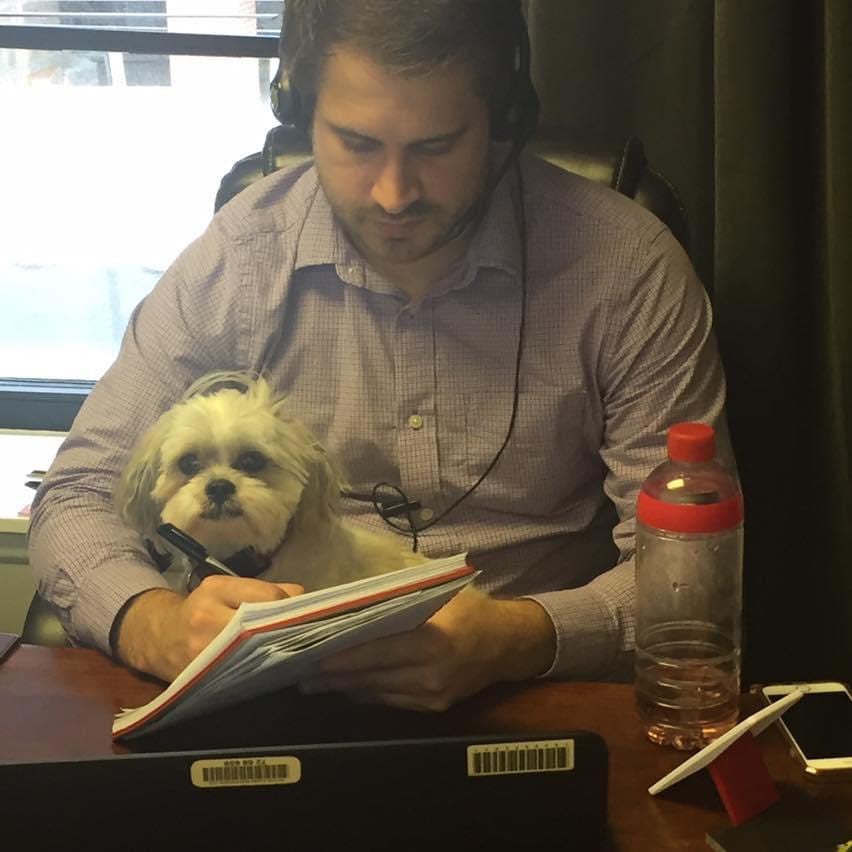This man’s love of his Maltese shih tzu could change America forever
Nashville insurance broker Tim Shrum lost custody of his dog Tryp after a divorce. He tells Bevan Hurley how the painful experience spurred him to convince lawmakers to recognise pets as a member of the family


Your support helps us to tell the story
From reproductive rights to climate change to Big Tech, The Independent is on the ground when the story is developing. Whether it's investigating the financials of Elon Musk's pro-Trump PAC or producing our latest documentary, 'The A Word', which shines a light on the American women fighting for reproductive rights, we know how important it is to parse out the facts from the messaging.
At such a critical moment in US history, we need reporters on the ground. Your donation allows us to keep sending journalists to speak to both sides of the story.
The Independent is trusted by Americans across the entire political spectrum. And unlike many other quality news outlets, we choose not to lock Americans out of our reporting and analysis with paywalls. We believe quality journalism should be available to everyone, paid for by those who can afford it.
Your support makes all the difference.For six years, Tim Shrum and his maltese shih tzu Tryp were constant companions and the best of friends.
The 34-year-old Nashville insurance agent took Tryp on daily walks, fed and bathed him, and would bring him into the office and make sure his vet check-ups were current.
“I was his person, and he was my guy,” Mr Shrum told The Independent.
When his marriage ended last year, Mr Shum says that his ex-wife refused to even discuss shared custody or visitation. And because she had owned Tryp for a year before they married, the Tennessee divorce courts declined to intervene.
“One day I went to work, and came home and I never saw him again,” he told The Independent.
“He didn’t choose to leave, you know, and I didn’t choose for any of this to happen. I think of him wondering, ‘Hey, where did he go?’ Waiting for me to come through the door.”
Now, Mr Shrum is channelling that painful experience towards getting a bill passed by the Tennessee legislature that will recognise companion animals as a member of the family, rather than a piece of furniture, in the eyes of the law.
The Rights of Your Pet bill, aka The TRYP bill as Mr Shrum wants it to be called, would also allow a judge to determine custody based on the pet’s best interests.
“Without this type of law, family law attorneys and judges almost can’t be bothered with this,” Mr Shrum said.
Currently, a majority of states treat pets just like any other piece of property to be split between spouses in a divorce.
But the issue of formally recognising pets as akin to a child is gathering momentum in states around the United States after years of requests from pet owners and a spike in costly, and emotionally fraught, custody battles.
In 2017, Alaska became the first state to pass an amendment to divorce statutes that would consider pets’ well-being in divorces.
The “groundbreaking” law gave judges the power to assign joint custody of their treasured pooches and felines.
Since then four other states – New York, California, New Hampshire and Illinois, plus Washington DC – have adopted similar laws.
Professor Kathy Hessler, the assistant dean for Animal Legal Education at George Washington University Law School, told The Independent that one reason it had taken so long to pass pet custody laws was that legislatures did not take the issue seriously.
“Many worried that (passing legislation) would create a flood of litigation,” said Ms Hessler, who testified before the Alaska legislative in 2017.
“That has not happened, and instead legislative action has facilitated a more peaceful transition for separating families in those few states that have passed statutes.”

Under the new laws, couples can elect whether to treat companion animals as a family member.
“This can help make a difficult time less adversarial for the parties and lead to smoother and faster resolutions that take into account the interests of the animals as well as the people involved,” Ms Hessler said.
The Oklahoma legislature was another government body that was considering a bill which, if passed, would recognise cats and dogs as sentient rather than inanimate property.
And research shows that US pet owners overwhelmingly agree with that sentiment.
A 2018 survey of 50,000 pet owners by the American Veterinary Medical Association found that 85 per cent of dog owners and 76 per cent of cat owners think of their pets as family.
Christopher Berry, a managing attorney at the nonprofit Animal Legal Defense Fund, told The Independent that laws had lagged behind societal shifts.
“The law hasn’t caught up with cultural attitudes about animals,” Mr Berry said in an interview. “People value companion animals more than the law appreciates they do.”
Mr Berry said legal disputes between divorcing spouses were common and costs to settle the cases often reached the tens of thousands of dollars.
“The cost of litigation is a barrier and one reason why historically the issue hasn’t received as much attention by the courts.
It was only in the last century that it has become illegal for an owner to abuse their animal, he added.
Slowly but surely, Mr Berry said lawmakers and courts were coming around to formally recognising the unique personalities that animals have.

Barbara Gislason, a Minneapolis-based attorney and author of Pet Law and Custody, told The Independent the issue was gaining traction internationally everywhere from China to Canada.
She said there was little consistency in the ways that pets were treated under different state and national laws.
Ms Gislason favours placing pets in a special category between property and personhood.
Mr Shrum told The Independent that there he felt like there was a “tidal wave” of animal welfare legislation being passed.
In his case, he said he used “guerilla marketing” tactics to gain the attention of two state lawmakers Representative Caleb Hemmer and Senator Jeff Yarbro.
He drafted up fake front pages of his local newspaper, The Tennessean, with gushing articles written by the ChatGPT artificial intelligence system about the two state politicians and hand-delivered them.
“It’s hard to ignore somebody who comes and drops it off at your office,” he said.

Mr Hemmer and Mr Yarbro, both Nashville Democrats, agreed to sponsor the bill, which is now making its way through the Tennessee legislature.
“For many people, pets are like family members and even cared for like children,” Mr Hemmer told The Independent in a statement.
“It only makes sense for courts to treat them the same way.”
The bill won’t provide Mr Shrum with the chance to reunite with Tryp, but he says he’s found his calling in trying to ensure that nobody else goes through a similar experience.
“Everything I did was in Tryp’s best interests, and that’s all I’m asking lawmakers to do.”



Join our commenting forum
Join thought-provoking conversations, follow other Independent readers and see their replies
Comments